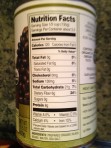“I never fry with oil. I use broth or a little water.” My girlfriend recently declared war against her bathroom scale and her growing wardrobe, growing in size that is, from an 8 to a 12. She had it with the disappointing reflection in her mirror, with her decreasing health and declining feeling of wellbeing, and she was sharing with me one of her secrets to her success: no more oil.
Imagine a tablespoon of oil. Now imagine a tablespoon of oil in a fry pan and compare it to the amount we really use. Imagine a tablespoon of salad dressing. Now compare that to the amount we use on our salads. Most likely what we actually use is more like two tablespoons, maybe even three. Oil is calorie dense and one of the most likely contributors to our increasing weight gain. Get rid of the oil and lose weight, gain health, and feel better.
Cuisines across all nations use oil. I recently experimented with a cookie recipe using teff flour, a North African cereal grain, and a half a cup of oil, among other ingredients. I just wanted the benefit of the calcium in the teff flour so I left out the sugar but I never considered the oil. The recipe turned out nicely and I started eating it for breakfast. After a few days, I noticed I had gained weight and, knowing the only thing I changed in my diet was the teff flour recipe, I realized that the oil in it was the most likely culprit.
Like salt, oil can enhance the flavors in a recipe. Oil is also one of the tools used to enhance the flavors in processed foods. The more oil, the more taste and the more fat. Dr. Furhman has a neat little diagram of a stomach filled with 400 calories of oil compared with 400 calories of greens and vegetables. The difference is striking as the stomach is quite empty on 400 calories of oil, while quite full with 400 calories of vegetables. The point is that we are still hungry after eating 400 calories of oil because our stomach are still empty, while they are completely full after eating 400 calories of greens and vegetables.
Oil is rich and eating fried or oil-laden foods causes us to overeat. Too much of this type of eating can sicken us, give us stomach aches, and over a period of a lifetime, create some pretty serious illnesses for our heart and arteries. Oil is fat and though some are more healthful than others, a little oil goes a long way. Think one tablespoon; not three.
A little faith can go a long way too. Faith, like oil, enhances the flavors in life. But how do we begin to have faith in our scientific world? People often scoff at religion for its fairytale-like stories of miracles and heaven where angels sing in the clouds. How do we take the historical Jesus seriously? Just wondering if he really existed has stumped some folks. However, virtually all historians agree that he did exist. The historical events in the New Testament line up with other historical texts, and references to Jesus can be found in texts other than the Bible. Making the assumption that Jesus actually lived is not much of a leap. A lot of experts agree that he did walk the earth once upon a time.
But what a walk. Accounts of Jesus in the Bible have him walking on water, feeding thousands with only a couple of loaves of bread and two fish, and even raising people from the dead. And healing? It seems like that’s all Jesus did wherever he went. Is believing all that accredited to faith?
I’d say faith begins with believing that Jesus lived and then died specifically as a sacrifice for sinful man. That’s not much of a leap either since crucifixion in Roman times was a common punishment for crimes, and in Jesus’ case, for blasphemy–claiming to be God.
So imagine Jesus who was a good man by anyone’s standards, letting himself be punished for crimes he did not commit, the crime of hatred toward him, and declaring right up to the end that he was dying for the very folks who were killing him. Now imagine Jesus embodied the soul of God who willingly endured a physically cruel and ultimately fatal punishment to save us from an equally cruel and fatal spiritual punishment so that He could love us forever, even while we were hating him. Going from the first image to the second is the first leap of faith, a fairly large one because it requires the acknowledgement that we are prone to evil and deserve punishment.
The belief that the historical death of Jesus met all the requirements for God’s justice against the evil in this world will flavor our lives with joy and comfort because we can approach God in peace and speak to Him as our own dear Father. Acting out that tiny bit of faith does enormous things to our lives, but getting there requires a good look in the mirror.
For if while we were enemies we were reconciled to God by the death of his Son, much more, now that we are reconciled, shall we be saved by his life. More than that, we also rejoice in God through our Lord Jesus Christ, through whom we have now received reconciliation.
Romans 5:10-11









